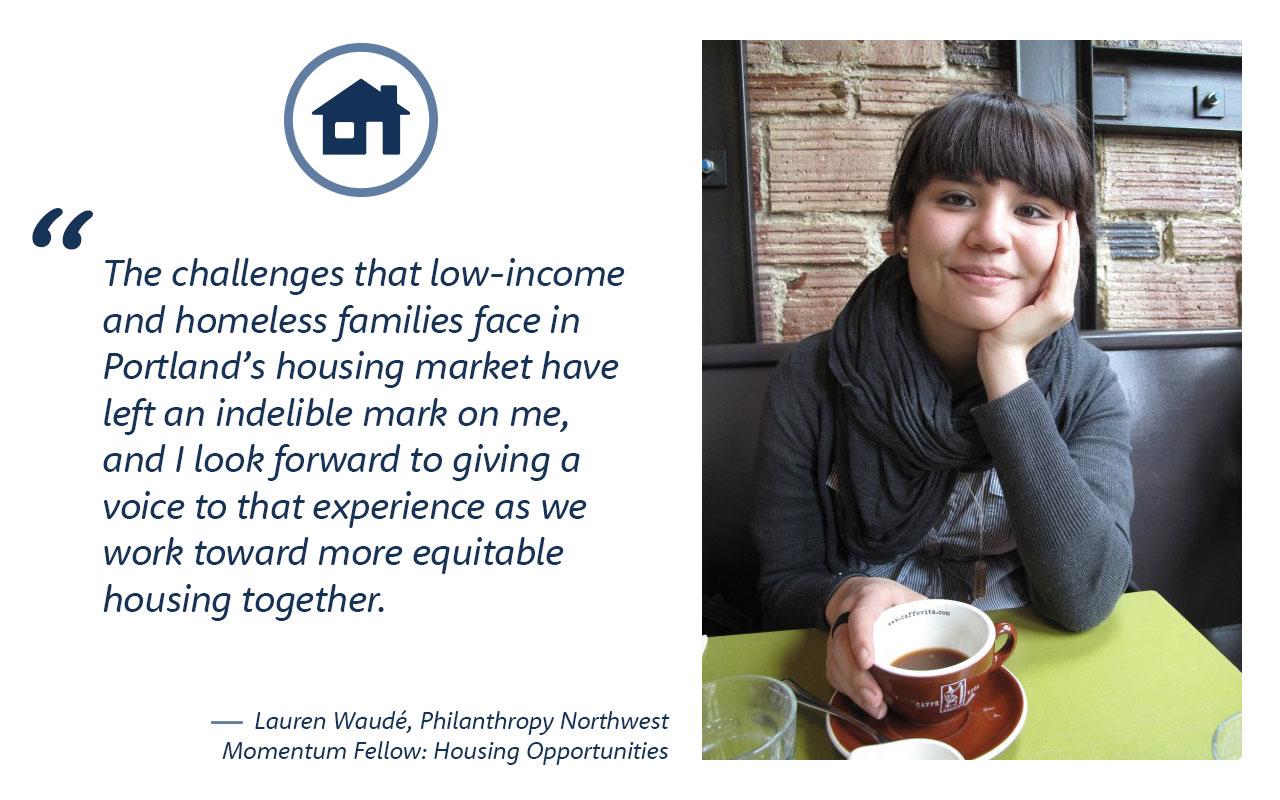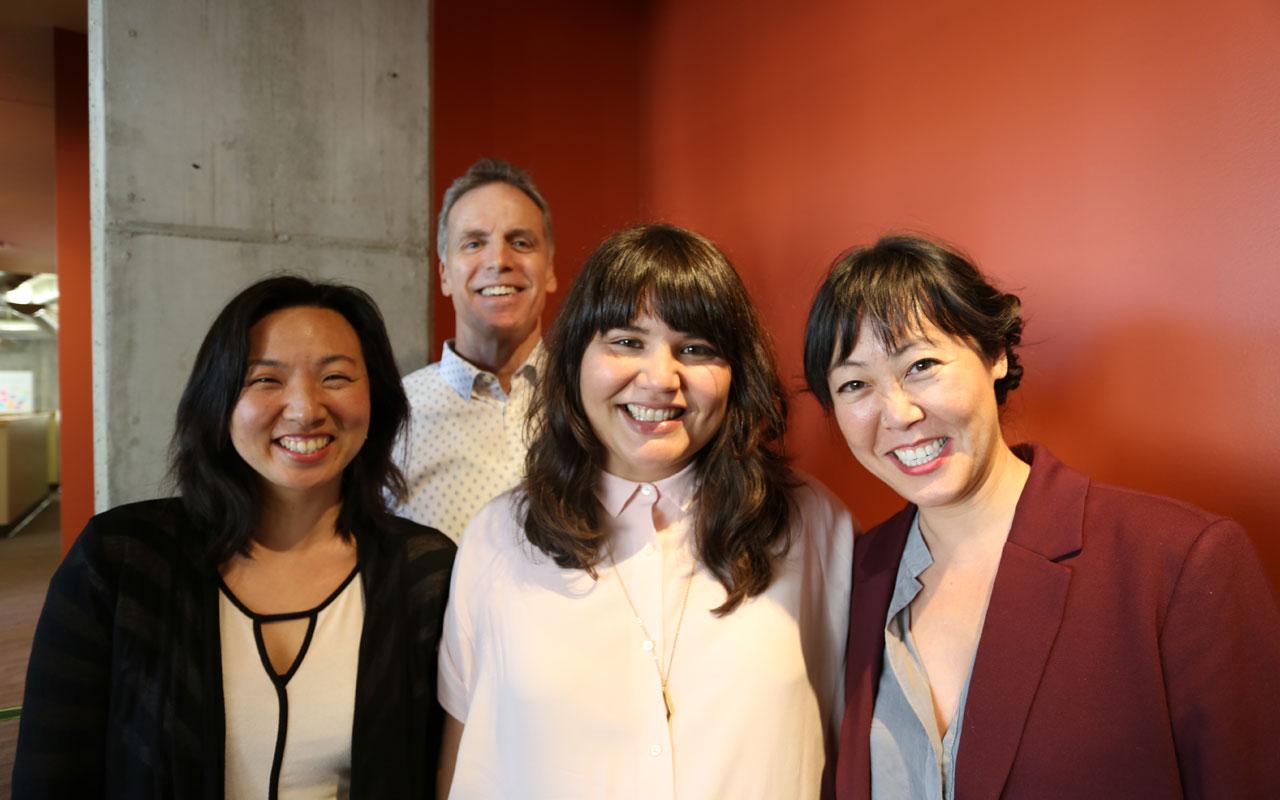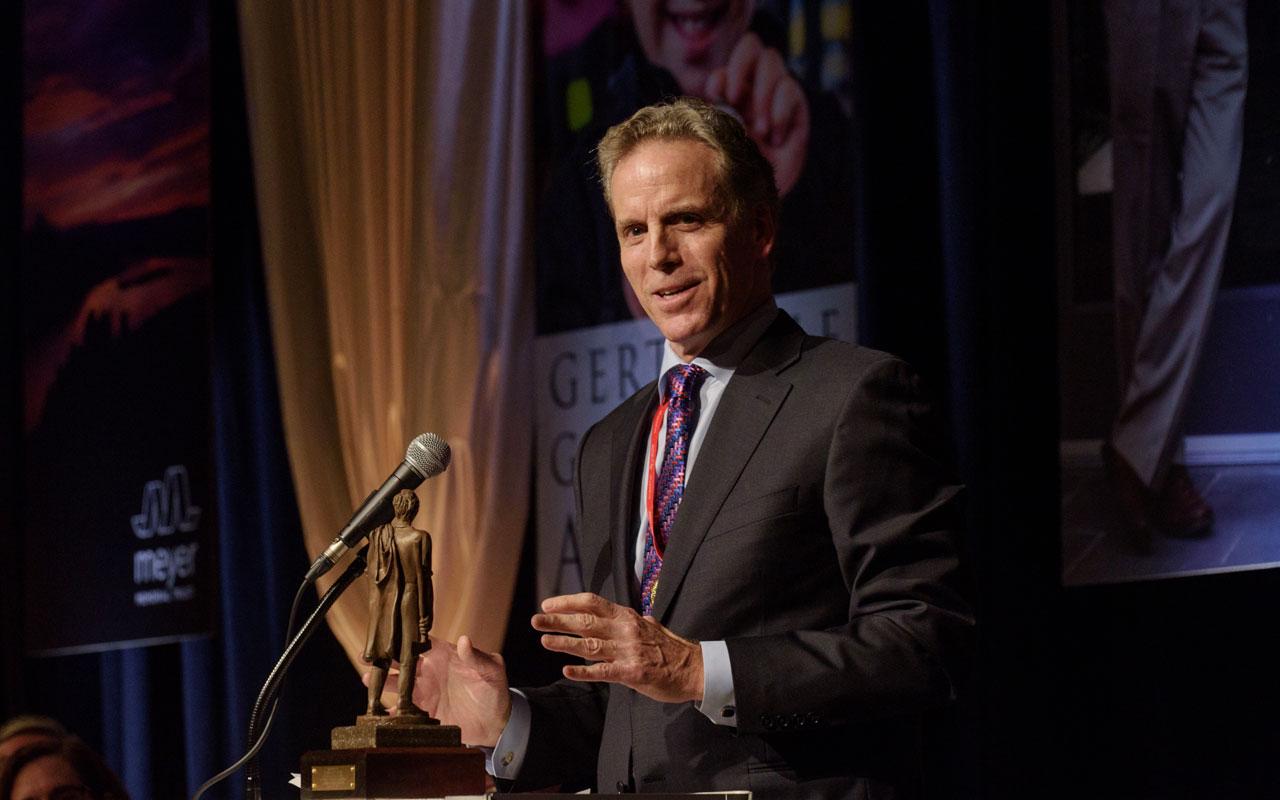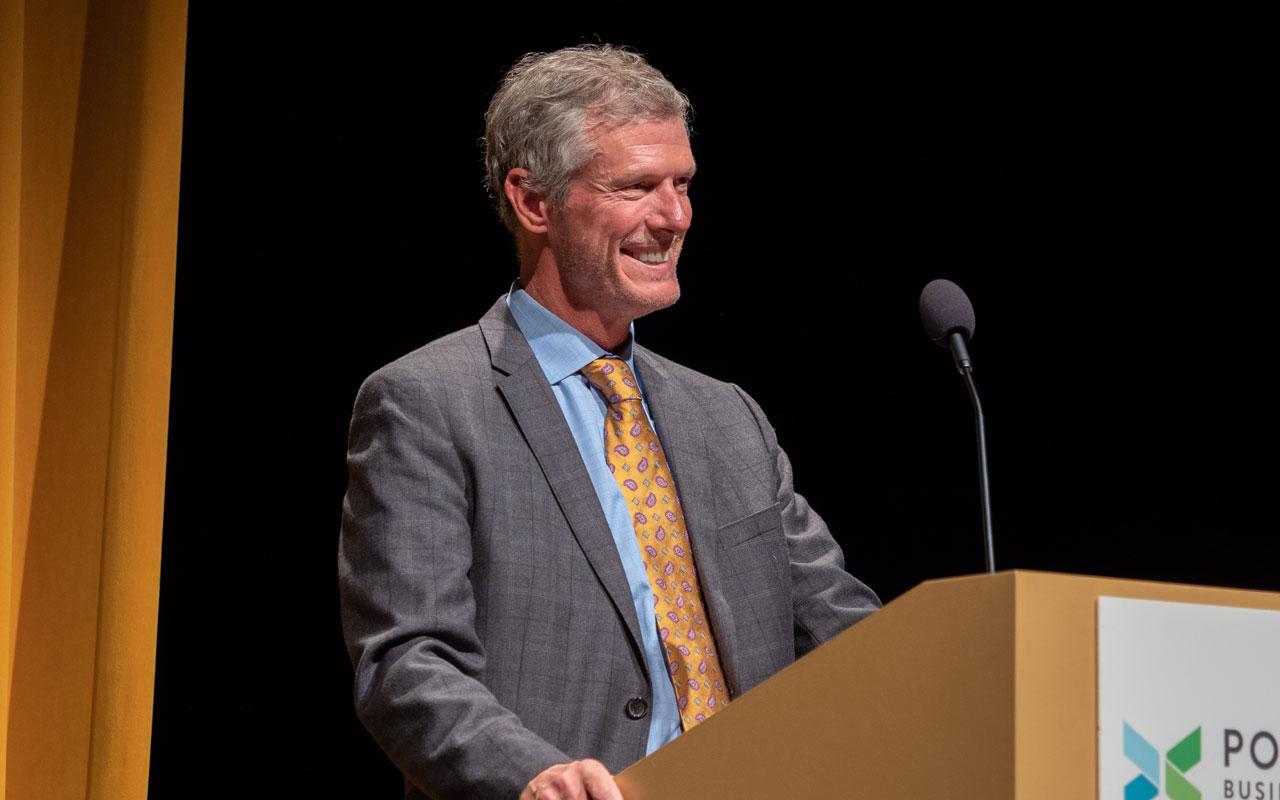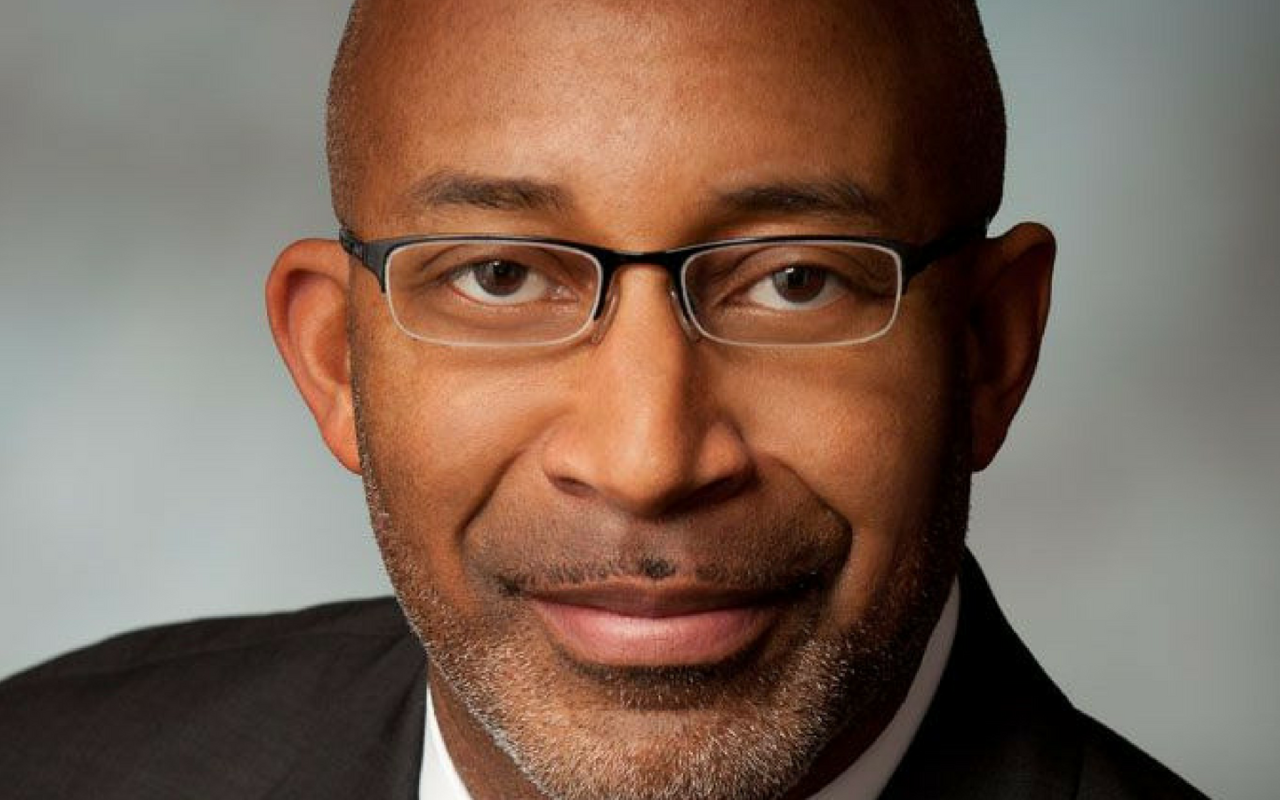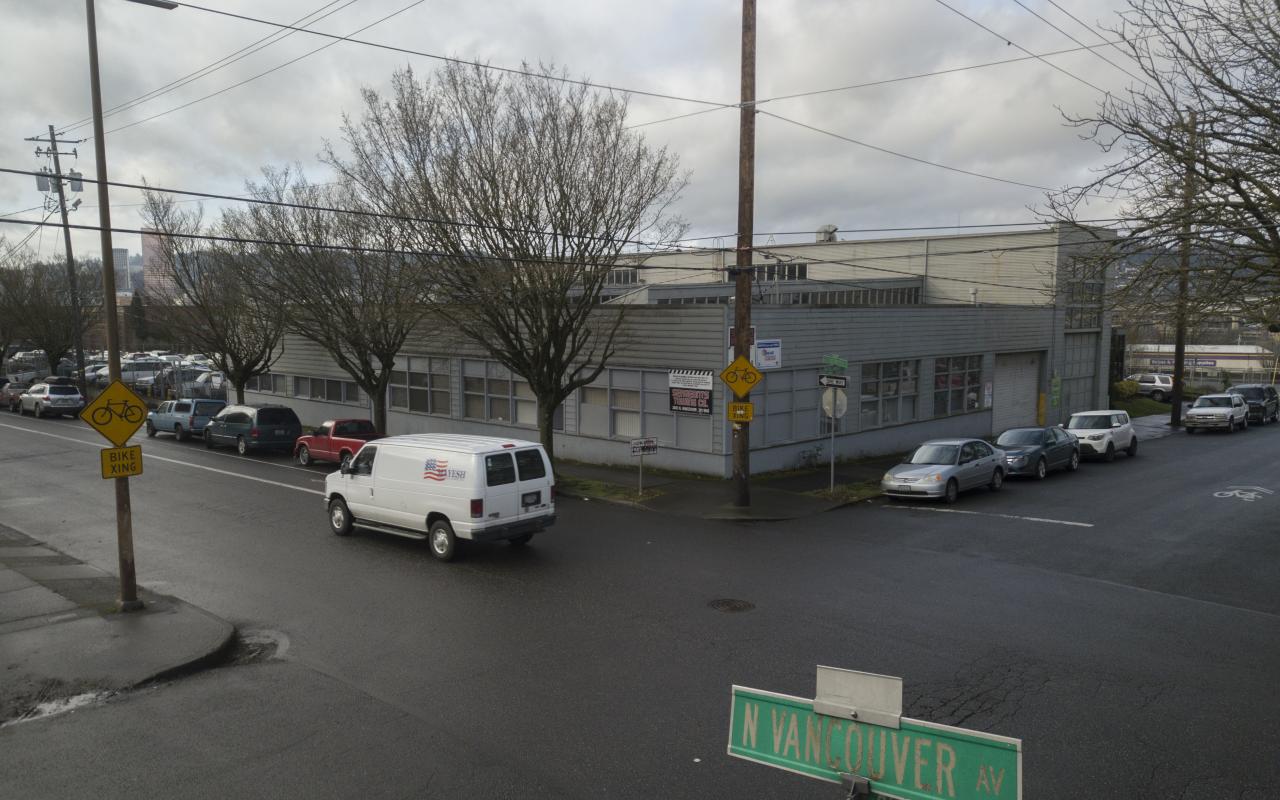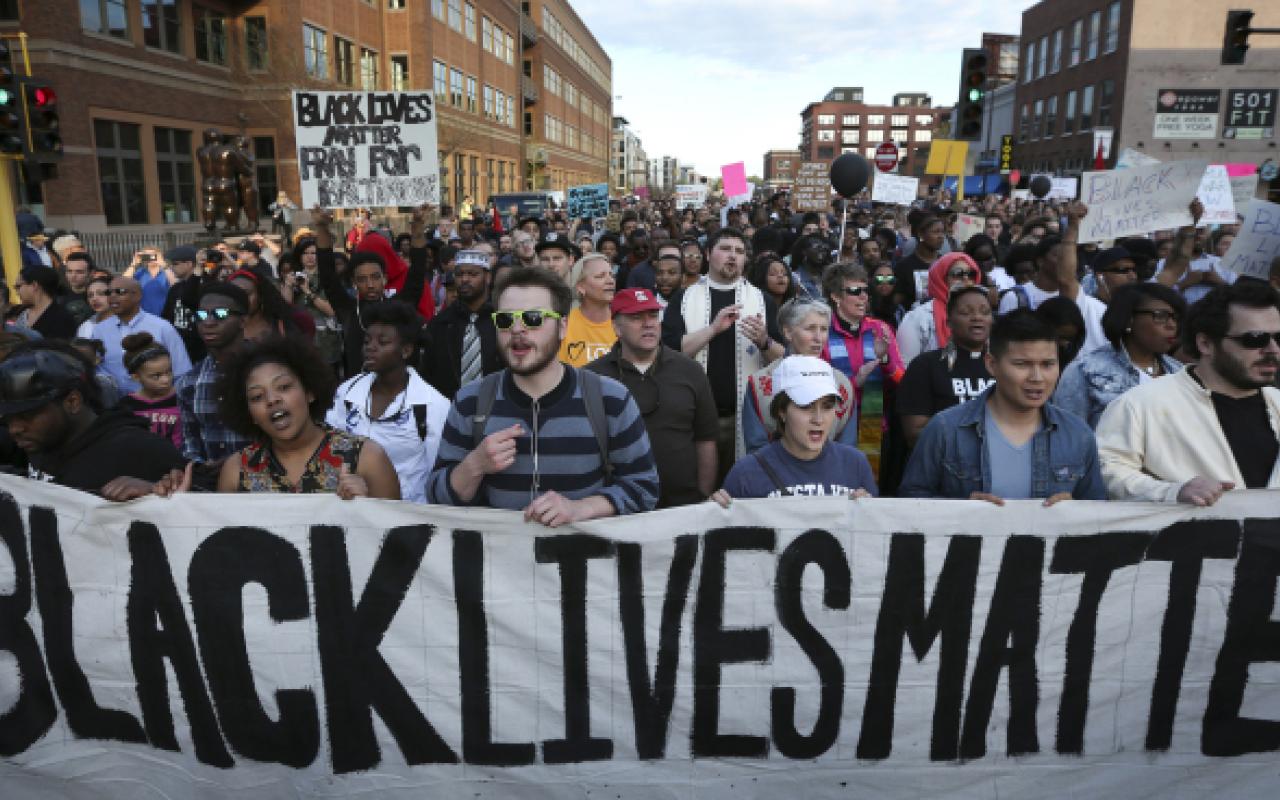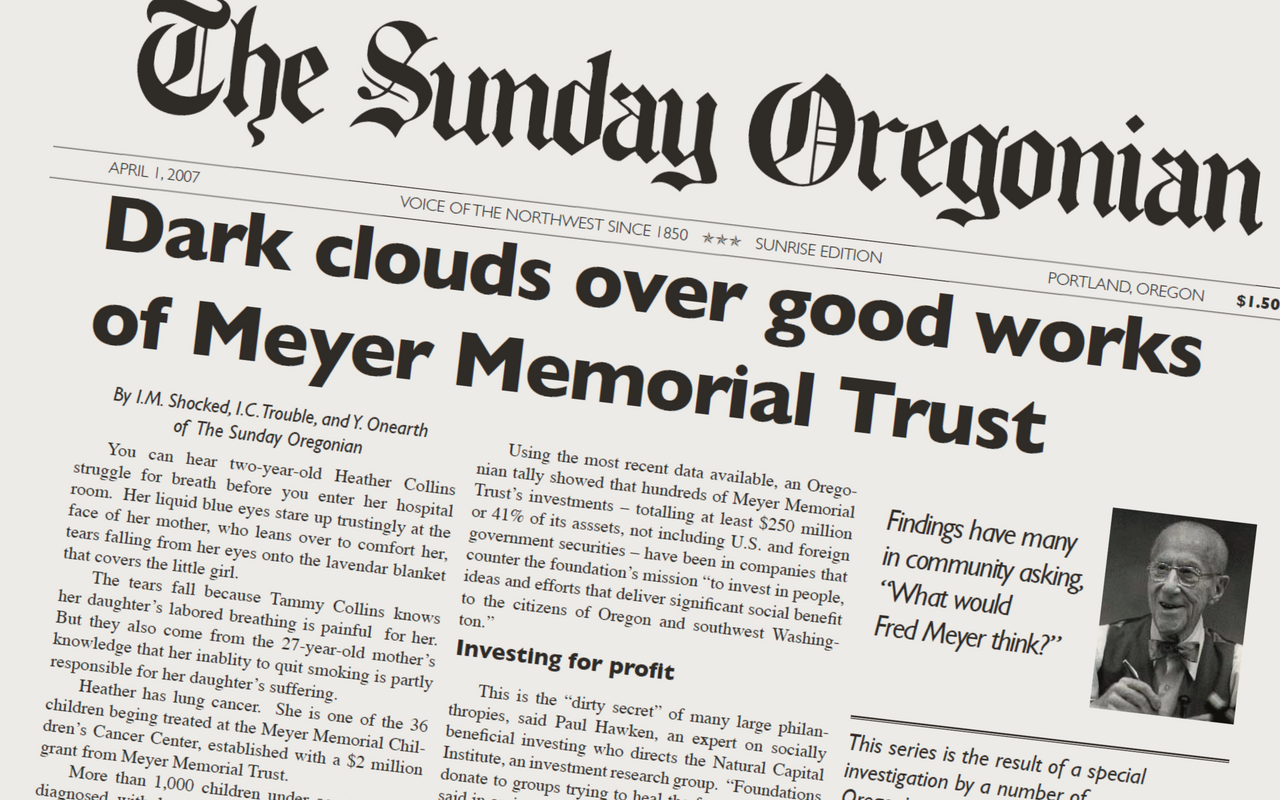Farewell to Meyer’s first fellows
How did two years pass so quickly?!
That’s the question we keep asking ourselves as the first cohort of Philanthropy Northwest Momentum Fellows completes their placement at Meyer. In their time with us, Sharon Wade Ellis, Katherine Porras and Marcelo Bonta have brought much to Meyer: great ideas, passion for the mission, sharp thinking, curiosity and a willingness to roll up their sleeves and do the work.
We each wanted to mention a few individual highlights ...
From Theresa
Sharon joined the Housing Opportunities team as we were busy with several Affordable Housing Initiative grant opportunities. She conducted due diligence on two housing grants in her first weeks, which was good learning for her and a tremendous relief to the team. Beyond that, she has contributed to discussion and planning around several of our new procedures and conducted research that helped shape our thinking and strategy around rural manufactured housing. Equally important is Sharon’s commitment to and enthusiasm for Meyer’s mission to advance diversity, equity and inclusion in the organization and with our nonprofit partners. She has modeled our values there and raised equity concerns effectively in her work at Meyer. Her interest in social justice work clearly came through in some of her blog postings on Meyer’s website, including reflections about what she has experienced and learned about diversity, equity and inclusion — or the lack thereof. I am confident she will bring her developed equity lens to her next position and help inform the equity conversation there.
From Jill
Marcelo’s two years with the Healthy Environment team could not have been timed better. During the first year, a big focus of our work was developing the portfolio framework, our goals and outcomes. He brought sharp analysis and solid experience from his previous nonprofit work in the environmental movement. He was a key thought-partner in creating the framework that now guides our work. Outside the Healthy Environment Team, he worked as part of a cross-department team to develop Meyer’s DEI Spectrum Tool and consider equity in organizational communications, and he contributed to the ongoing development of Meyer’s equity work. In addition, he helped the Healthy Environment Team learn how to hit pause on tackling the to-do list and to also consider how were were feeling about our work as well as our collaborative approach to doing it. No doubt he will continue to do great work in his new role with The Raben Group, where he will be a principal focusing on building out their DEI consulting arm, with an emphasis on the environment. This sounds like a perfect next step for him given his passion for this work and his deep expertise.
From Rukayiah
Kat joined Meyer’s investment team in time to help us audit and formulate a process for monitoring all our investment manager fees. She saved Meyer a lot of money! She became the go-to person for manager questions and worked closely with me to get the necessary answers. She also became an investment manager contract expert and reviewed all our current and new contracts to make sure the terms are favorable. She helped us plan and execute our 2016 Roundtable, which is a conference for all our investment managers, including international, to meet and discuss pertinent issues around our investments. She has also done a review of our main investment policy documents to ensure consistency of language and message. She dove into Meyer’s equity activities, including helping to plan equi-teas where we inform and discuss current issues. I am excited to see where her talents take her next and know she will be valuable to any team.
We are grateful for the many contributions Sharon, Kat and Marcelo made to Meyer in their two short years as Momentum Fellows. They all are incredibly talented and will no doubt continue to do great work. Although we are sad to see them leave, we are excited about their next steps.
— Theresa, Jill and Rukaiyah
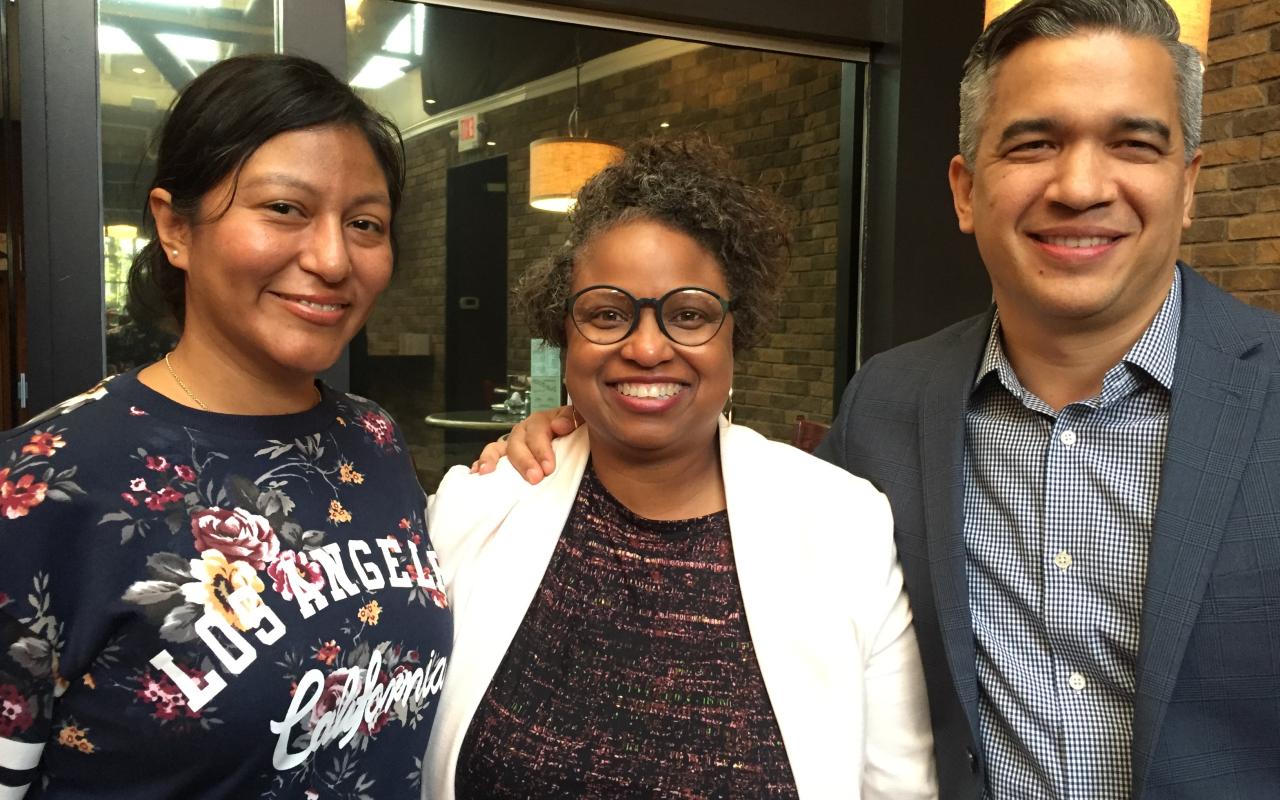
We'll miss you, Katherine, Sharon and Marcelo!

